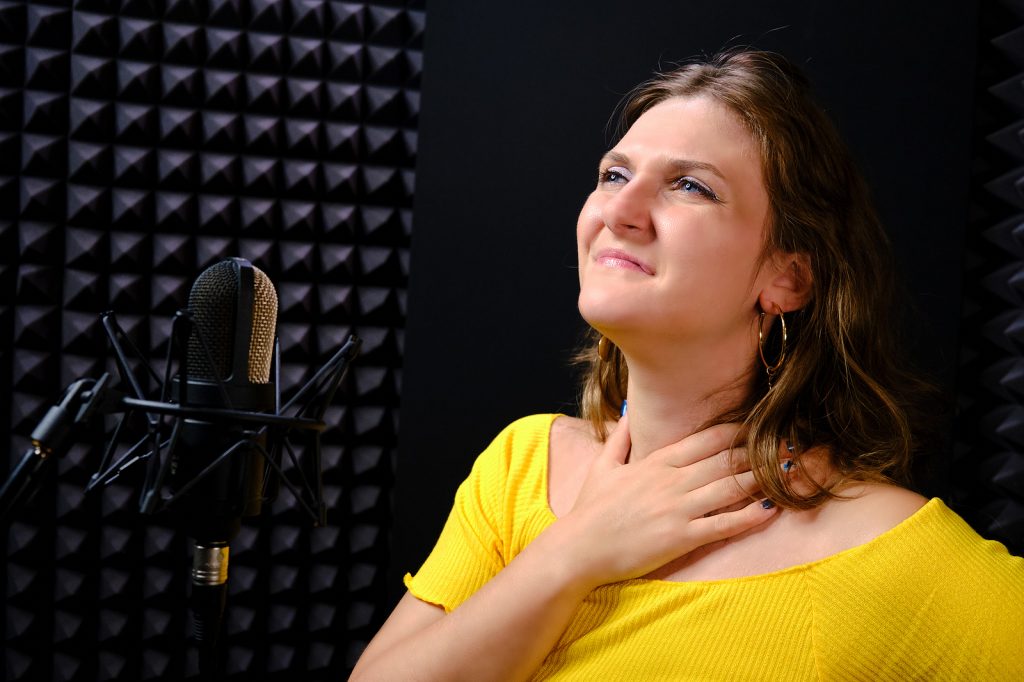
We use our vocal cords all day long without thinking about them. Most of the time they are working silently and efficiently when we breathe, speak, sing or swallow. Our vocal cords open when we breathe and close briefly when we speak, grunt while lifting something heavy or during other reflexive actions.
Vocal cord dysfunction (VCD), occurs when the vocal cords do not open correctly, causing a narrowing of the voice box that creates a sensation of reduced airflow and respiratory distress—in other words, being unable to draw in a breath. For that reason, VCD is often mistaken for asthma.
ASTHMA VS. VOCAL CORD DYSFUNCTION
It’s not hard to see why. Much like with asthma, symptoms of VCD include difficulty breathing, coughing, wheezing, chest or throat tightness. Both conditions can be similarly triggered by exercise, colds or viral infections, and inhaling dust or allergens.
The differences can be difficult to spot. With asthma, the airways (bronchial tubes) tighten, making breathing difficult. With VCD, it’s a tightening of the vocal cord muscles, not the airways, that impedes breathing.
A subtle difference between the two conditions is that people with VCD have trouble taking in a full breath, whereas people having an asthma attack feel like they can’t expel their breath. More important, when VCD is incorrectly identified as asthma, medications that typically relieve asthma symptoms, including bronchodilators, will not relieve the symptoms of someone with VCD alone.
DIAGNOSING VCD
Despite the similarity between the two disorders, the treatment approach for VCD is quite different from treatments used to manage and control asthma. To complicate matters, some people have both VCD and asthma, and need to be treated appropriately for each condition. All this makes it essential to obtain a correct diagnosis.
Your doctor will review your history of breathing difficulties and ask you about your symptoms. These may include:
- Throat or chest tightness
- Noisy inhalation
- Voice changes or the inability to speak
- Difficulty breathing in
- Feeling of throat closing
- Intermittent shortness of breath
- Chronic cough
Your physician may order diagnostic tests, such as spirometry, a breathing test that measures airflow, or laryngoscopy, a procedure that relies on images taken by a camera attached to a thin, flexible tube, which is inserted through the nose and into the throat. The latter test requires sedation.
If your physician suspects vocal cord dysfunction, he or she may refer you to a specialist, such as an otolaryngologist or a speech pathologist. Treatment for vocal cord dysfunction typically includes medical and behavioral care. It will likely include identifying and controlling environmental triggers that bring on a VCD episode. Your practitioner may also provide an exercise program that will help you develop better control over your breathing.
PREVENTION
Avoiding common triggers for VCD will help keep symptoms under control. These triggers can vary widely and may include:
- Exercise
- Strong odors or fragrances
- Smoke
- Pollen
- Increased stress and anxiety
- Upper respiratory infections
- Coughing, laughing or singing
- Changes in temperature and humidity
- Acid reflux
- Breathing in cold air
Armed with a proper diagnosis by a skilled healthcare professional, people with vocal cord dysfunction can learn to live with the disorder. The right guidance can help you manage your symptoms by avoiding sources of chronic throat irritation and learning to relax the throat so the vocal cords can function properly while breathing.
WORK CITED
Davis, A.C. “Vocal Cord Dysfunction.” Hopkins Medicine. https://www.hopkinsmedicine.org/health/conditions-and-diseases/vocal-cord-dysfunction
“Paradoxical Vocal Fold Movement (PVFM).” The American Speech-Language-Hearing Association. https://www.asha.org/public/speech/disorders/Paradoxical-Vocal-Fold-Movement/
Pruitt, Bill, MBA, RRT, CPFT, AE-C, FAARC. “Asthma or Vocal Cord Dysfunction?” RT Magazine, Feb 5, 2013. https://rtmagazine.com/disorders-diseases/chronic-pulmonary-disorders/asthma/asthma-or-vocal-cord-dysfunction-2/
“Vocal Cord Dysfunction.” The American Academy of Allergy, Asthma & Immunology. https://www.aaaai.org/conditions-treatments/related-conditions/vocal-cord-dysfunction
“Vocal Cord Dysfunction (VCD).” Last reviewed September 01, 2017. National Jewish Health. https://www.nationaljewish.org/conditions/vocal-cord-dysfunction-vcd
“What is ‘COVID-19 Voice’ and what causes it?” Health Essentials. The Cleveland Clinic. April 13, 2021. https://health.clevelandclinic.org/what-is-covid-19-voice-and-what-causes-it/
